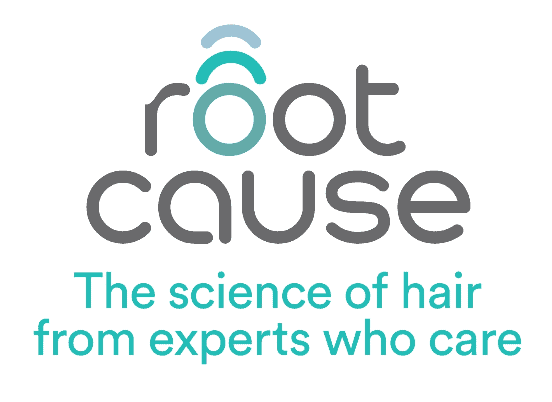The Link Between Vitamin B12 and Healthy Hair: What You Need To Know
12.10.24

Lisa, our trichologist covering Hampshire, talks about her interest in Vitamin B12 and our hair.
When it comes to hair health, few nutrients are as essential yet overlooked as Vitamin B12. If you’ve been struggling with thinning hair or excessive shedding, understanding the role of B12 might just be the missing piece of the puzzle.
As someone who’s passionate about uncovering the root causes of hair loss, B12 fascinates me. It’s not just about hair—it’s about energy, vitality, and how deeply connected our overall health is to the health of our hair. Working with clients, I’ve seen how restoring nutrient balance can transform not only hair but confidence too.
Why Is Vitamin B12 Important for Hair Health?
Vitamin B12, also known as cobalamin, is vital for the production of red blood cells. These cells carry oxygen and nutrients to your scalp and hair follicles, which are essential for healthy hair growth. Without enough B12, your hair follicles may not receive the nourishment they need, potentially leading to hair thinning, dryness, or even hair loss.
A deficiency in B12 can also cause:
- Increased hair shedding
- Weak or brittle hair strands
- Slower hair regrowth
- Fatigue and low energy, which can further impact your overall wellbeing and ability to care for yourself
When I first began exploring the science behind hair loss, I was amazed to learn how much something as small as a nutrient deficiency could affect your hair.
It’s why I’m so passionate about combining hair solutions with health solutions.
What Causes a B12 Deficiency?
Most B vitamins are water-soluble, meaning they’re quickly flushed out of the body. B12 is unique, though—it can be stored in the liver, with smaller reserves in the muscles and bone marrow, allowing the body to maintain a supply that can last for years.
Despite this, deficiencies can still occur due to:
- Dietary Gaps: B12 is primarily found in animal products, so vegans, vegetarians, or those with limited meat and dairy intake are at higher risk.
- Absorption Issues: Conditions like pernicious anaemia, Crohn’s disease, or celiac disease can interfere with the body’s ability to absorb B12 from food.
- Medications: Long-term use of medications like metformin (used for diabetes) or antacids can reduce absorption.
- Aging: As we age, the ability to extract B12 from food naturally declines, even if dietary intake is sufficient.
How to Boost Your B12 Levels Through Food
I love sharing practical ways for my clients to take control of their health, and food is always the first place to start. To increase your B12 levels naturally, focus on these foods:
Animal-Based Sources (Most Bioavailable)
- Liver (beef or chicken): A powerhouse of B12.
- Salmon and Tuna: Rich in B12 and omega-3 fatty acids.
- Eggs: Particularly the yolks.
- Dairy Products: Milk, cheese, and yogurt.
- Shellfish: Clams, mussels, and crab are excellent sources.
Fortified Plant-Based Options
For those following a vegan or vegetarian diet, look for foods fortified with B12:
- Plant-based milks (almond, soy, oat).
- Nutritional yeast: Sprinkle it on salads or pasta for a cheesy flavour.
- Fortified cereals: Check labels for B12 content.
Can You Overdo B12?
Although B12 is water-soluble and excess is usually excreted, over-supplementing can sometimes cause side effects, including:
- Headaches or dizziness
- Nausea or upset stomach
- Skin rashes or acne-like breakouts
- Anxiety-like symptoms (rare, at very high doses).
Stick to the recommended daily intake (2.4 mcg for adults), but higher doses may be required if you have a deficiency. Always consult with a healthcare provider before starting a supplement, especially if you’re managing an existing condition.
B12 and Your Hair: The Bottom Line
B12 plays a critical role in maintaining healthy hair, but it’s only one part of the bigger picture. Supporting your overall health—through balanced nutrition, stress management, and proper scalp care—is essential for strong, vibrant hair.
Why Lisa Loves Talking about Vitamins

Personally, I love the challenge of combining science with personalised care to help my clients feel confident again.
Hair loss can feel isolating, but solutions often start with something as simple as understanding your body’s needs.
If you’re concerned about your hair or want to explore how your nutrient levels might be affecting growth, let’s work together to uncover the root causes.
Healthy hair starts from within, and at Root Cause Clinical we are here to help you every step of the way.
To book a consultation with Lisa or one of her colleagues, CLICK HERE.
